Curious about Consumer Protection New Hampshire? This article explains the state’s laws against deceptive practices, outlines common scams, and offers practical steps to safeguard your rights.
Key Takeaways
- New Hampshire’s Consumer Protection Act safeguards against unfair business practices and provides a legal framework for consumers to seek recourse.
- The Consumer Protection & Antitrust Bureau enforces consumer protection laws, investigates complaints, and educates the public on their consumer rights.
- Consumers are encouraged to conduct thorough research and recognize red flags in business practices to avoid falling victim to deceptive tactics such as bait and switch advertising.
Understanding Consumer Protection in New Hampshire
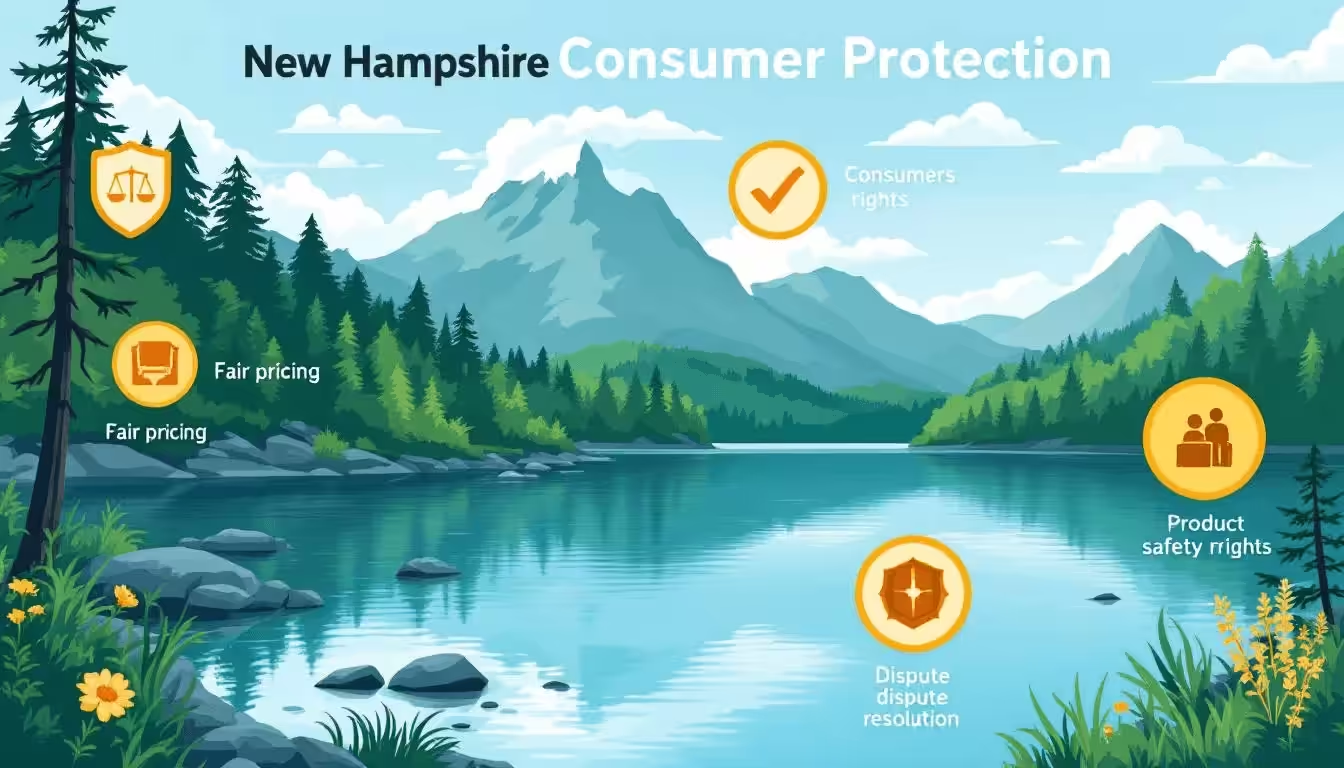
Consumer protection in New Hampshire is essential as it provides safeguards against various forms of exploitation and ensures fairness in marketplace transactions. The state has a robust legal framework encapsulated in the Consumer Protection Act, which serves to enforce consumer rights and protect against unfair practices. Unfair or deceptive business practices are identified as acts that mislead consumers, violate consumer rights, or distort competition. NH law plays a crucial role in upholding these standards.
Common examples of deceptive practices include false advertising, bait and switch tactics, and misrepresents of products or services. Recognizing these elements enables New Hampshire consumers to shield themselves more effectively.
We will explore key legislation and the role of the Consumer Protection & Antitrust Bureau in this course to strengthen your understanding of consumer rights.
Key Legislation: The Consumer Protection Act
The Consumer Protection Act outlines specific unlawful business practices that harm consumers in New Hampshire. Under the Act, consumers can seek legal recourse against businesses engaging in unfair or deceptive practices. This includes failing to provide promised products or services, misrepresenting offerings, or providing substandard goods. Deceptive practices are defined under New Hampshire law as actions that mislead consumers or cause unfair competition.
Additionally, the Federal Trade Commission Act provides a federal basis for regulating unfair and deceptive acts that affect commerce. The New Hampshire Attorney General’s Office offers various resources to help consumers understand their rights and protections, including the Consumer Sourcebook, a comprehensive guide for understanding consumer rights and protections.
Role of the Consumer Protection & Antitrust Bureau
The Consumer Protection & Antitrust Bureau protects consumers from unfair or deceptive trade practices. Its key functions include:
- Enforcing state laws concerning deceptive business practices.
- Upholding federal laws related to antitrust issues.
- Ensuring compliance with the Consumer Protection Act by investigating consumer complaints and enforcing related laws.
The New Hampshire Consumer Protection Act prohibited conduct that is misleading or deceptive to consumers.
The Bureau’s mission encompasses consumer education and outreach to inform the public about their rights under New Hampshire’s consumer protection laws. They investigate elder abuse and financial exploitation cases, ensuring vulnerable populations are protected.
The Bureau’s functions include:
- Allowing consumers to file complaints online
- Questioning business practices and seeking measures to remedy situations
- Enforcing laws related to the sale of motor vehicles, housing, and consumer goods and services.
Identifying Unfair or Deceptive Business Practices
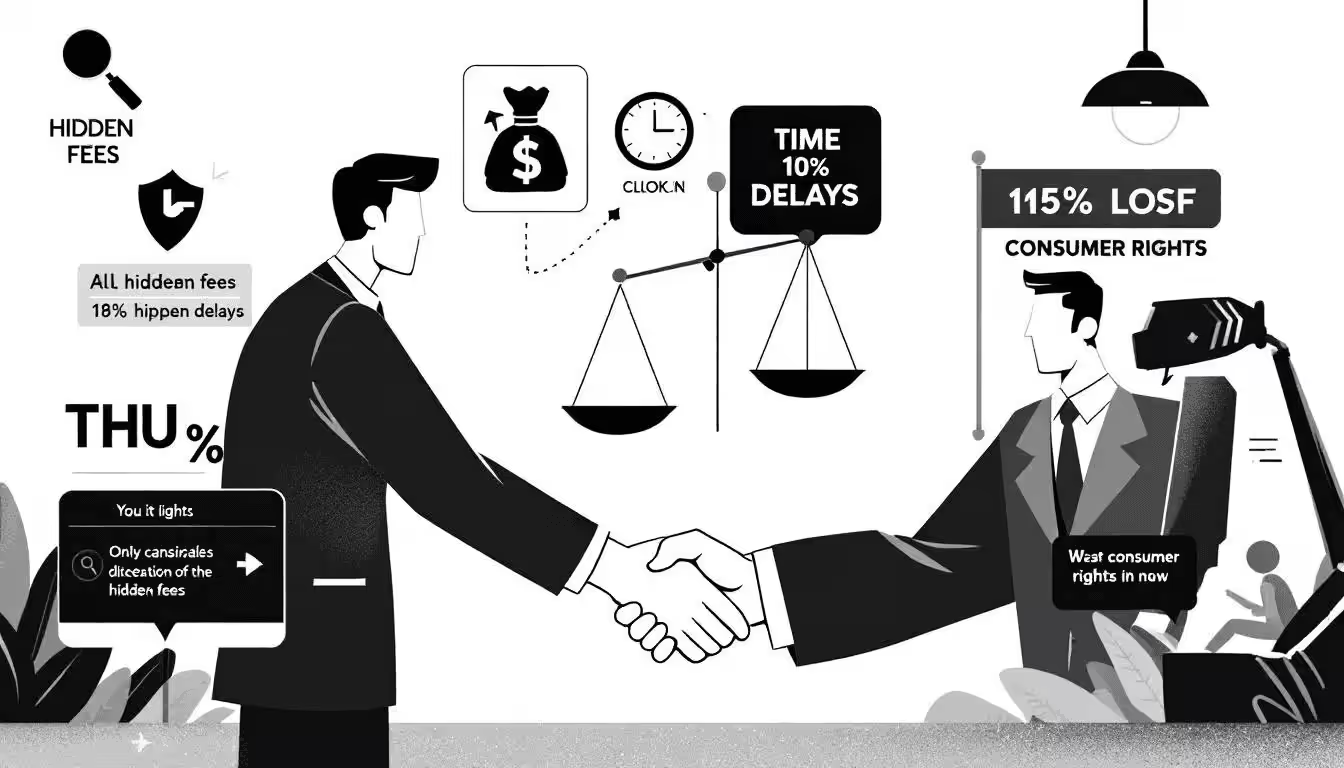
Consumer protection laws are designed to shield individuals from deceitful business practices and to maintain a fair marketplace. In New Hampshire, these laws prevent businesses from engaging in deceptive practices that can harm consumers. The New Hampshire Consumer Protection Act explicitly identifies various practices as unfair or deceptive, such as misrepresenting the condition or origins of goods. False advertising is also covered, ensuring businesses must not claim to sell goods or services that are not available as advertised.
It is vital for consumers to comprehend what constitutes unfair or deceptive business practices. We will provide common examples of these deceptive acts and explain the legal framework and enforcement mechanisms in place to combat them.
Common Examples of Deceptive Acts
Examples of deceptive business practices include:
- Falsely claiming a product is new or has specific qualities it lacks.
- Misleading advertisements that do not accurately represent the product being sold.
- Bait and switch tactics, such as when a retailer advertises a limited-time offer on an item, but when customers arrive, they are told the item is out of stock and are offered a more expensive alternative.
In real estate, bait and switch can occur when an appealing property is advertised, but potential renters are redirected to more expensive options that are actually available. Retailers may also advertise a significant discount on a product that, once pursued, reveals the product is unavailable while showing more expensive alternatives.
Awareness of these deceptive acts helps consumers avoid falling victim to such intended schemes.
Legal Framework and Enforcement
Complaints about unfair business practices can be submitted to the Consumer Protection and Antitrust Bureau Office in writing, using a specific complaint form. The Bureau does not guarantee that every complaint will be investigated or resolved, as it functions as a law enforcement agency. However, the Bureau can send the complaint to the business for their response, promoting possible resolutions.
Businesses found guilty of engaging in bait and switch tactics can face legal actions under the New Hampshire Consumer Protection Act, which prohibits deceptive practices. Penalties can include fines, restitution to consumers, and possible criminal charges depending on the severity of the violation.
These enforcement mechanisms ensure that businesses adhere to fair practices and regulation, maintaining a balanced marketplace.
How to File a Complaint
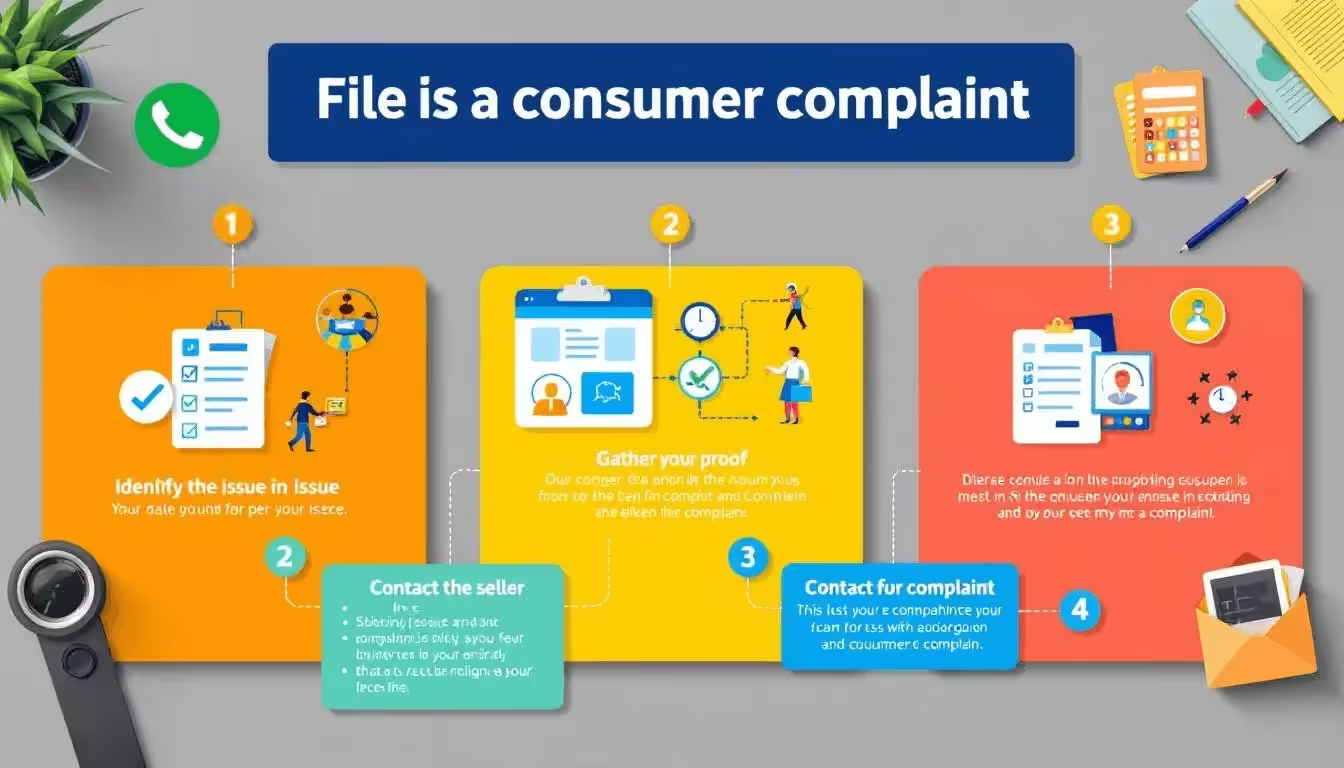
Filing a complaint helps escalate issues to authorities for consumers facing unfair or deceptive business practices. The review process for complaints is not formal, but the Bureau often helps consumers achieve resolutions, suggesting a support system in place for complaint handling. Understanding how to file a complaint effectively can significantly impact the resolution of your issue.
Before escalating an issue, consumers are encouraged to contact the seller directly to resolve disputes. If this approach fails, reaching out to authorities is the next step. We will guide you through the process of contacting the seller and escalating your complaint to the relevant authorities.
Contacting the Seller
Before escalating an issue, consumers are encouraged to:
- Contact the seller directly to resolve disputes.
- Address issues directly with the seller, as this can often lead to satisfactory resolutions.
- Try to resolve issues directly with the seller before escalating to formal complaints.
Detailed information and supporting documents can facilitate complaint resolution, saving time and demonstrating a good-faith connection to resolve the issue amicably. We can use this approach to ensure effective communication.
Reaching Out to Authorities
Unresolved complaints can be escalated to the NH Consumer Protection Bureau or the Federal Trade Commission. The enforcement of deceptive practices in New Hampshire falls under the Consumer Protection Act, primarily managed by the New Hampshire Consumer Protection and Antitrust Bureau.
Consumers can reach the New Hampshire Consumer Protection Hotline at 1-888-468-4454 for assistance with complaints and inquiries. The hotline provides support and resources to help consumers navigate the complaint process effectively. Taking these steps ensures that your issue is addressed by the appropriate authorities.
Additional Resources for Consumers
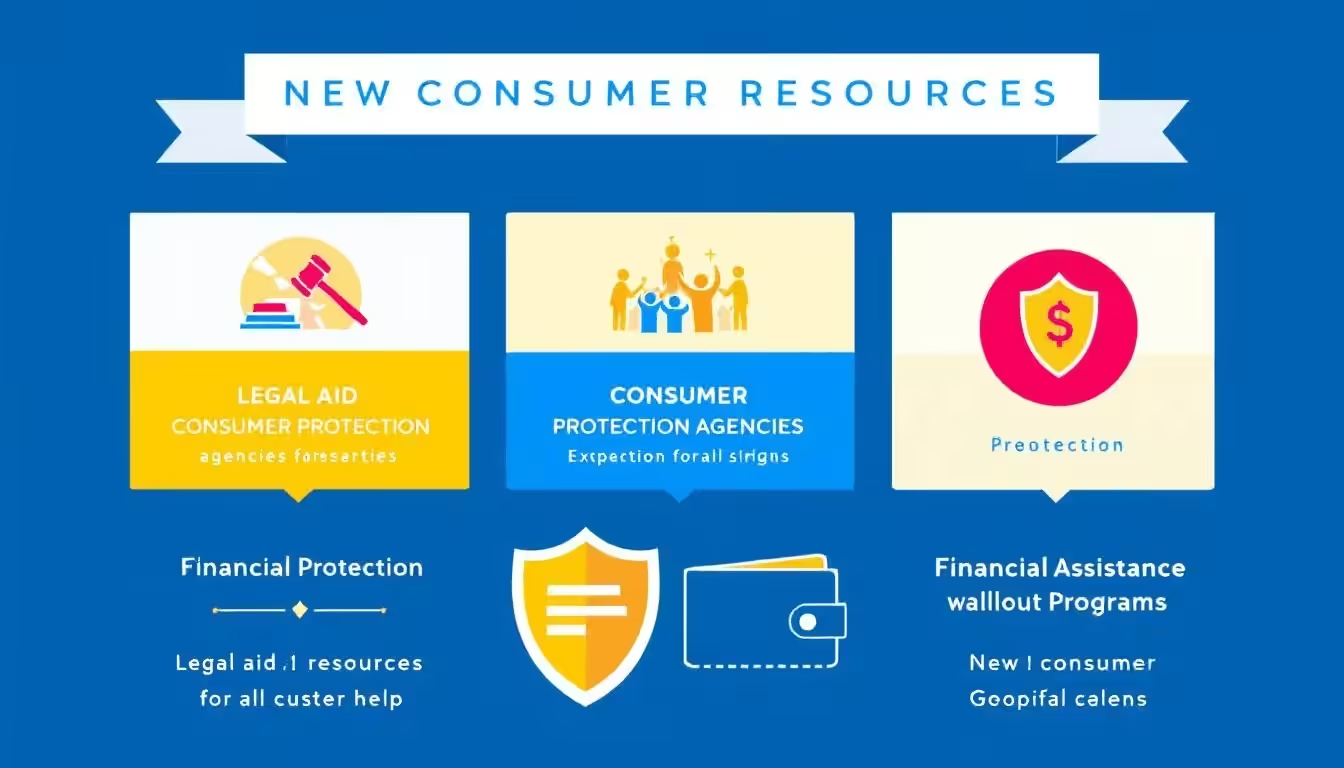
Consumer education and awareness are critical for protecting consumers against unfair practices. New Hampshire provides various resources for consumers to understand their rights and protections against deceptive practices. Being aware of your rights under New Hampshire’s consumer protection laws is essential for effectively guarding against unfair practices.
The Bureau provides education and outreach to inform consumers about their rights under New Hampshire’s consumer protection laws. Upcoming subsections will detail the consumer protection hotline and available educational materials and workshops.
Consumer Protection Hotline
The Consumer Protection Hotline in New Hampshire can be reached at 1-888-468-4454 for assistance with fraud and scams. Through the consumer protection hotline, consumers can receive assistance with filing a complaint and helpful resources.
Consumers can also contact the NH Consumer Protection & Antitrust Bureau at (603) 271-3643 for issues that remain unresolved after discussing with the seller. The hotline serves as a crucial tool for consumers seeking guidance and support in addressing deceptive business practices.
Educational Materials and Workshops
The New Hampshire Consumer Sourcebook serves as a reference tool that outlines consumer rights and topics related to consumer protection law. Workshops on consumer protection often cover practical steps for consumers to take to safeguard their rights when dealing with businesses.
Educational resources include summaries of applicable laws and points to consider, helping consumers navigate potential issues they may face. The New Hampshire Department of Justice provides various forms and publications aimed at educating the public about consumer protection matters. These resources are invaluable for consumers looking to protect themselves from unfair business practices.
Special Focus: Bait and Switch Advertising
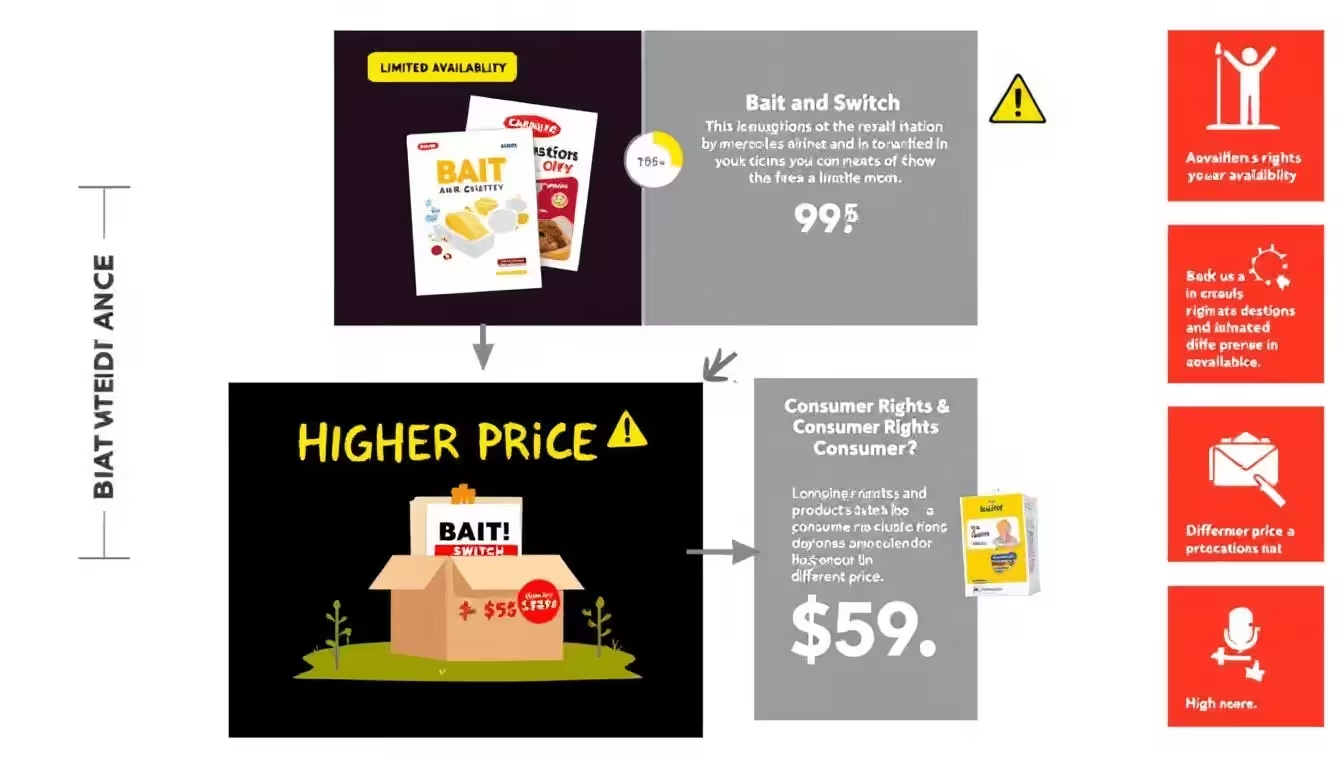
Bait and switch advertising involves promoting a product at a discount while having no intention of providing it at that price or not having sufficient stock. This deceptive marketing practice aims to lure customers with attractive offers that are not genuinely available, pushing them towards more expensive alternatives.
Bait and switch advertising is a common deceptive act in marketing, and recognizing it can help consumers avoid falling victim to such schemes. The following subsections will define bait and switch advertising and discuss its legal consequences.
Definition and Examples
Bait and switch advertising is a deceptive marketing practice where a business advertises a product at a low price but then directs customers to a more expensive product once they show interest. An example of bait and switch is when a store advertises a flat-screen TV at an unbeatable price but claims it is out of stock upon customer arrival, then offers a more expensive model instead.
Businesses engaging in bait and switch practices can face significant legal penalties, including fines and potential lawsuits from consumers or regulatory agencies. These examples highlight the importance of being vigilant and recognizing such deceptive tactics.
Legal Consequences
Bait and switch ad advertising involves advertising a product at a certain price, only to switch to a more expensive item when a customer attempts to make a purchase. Common examples of bait and switch tactics include advertising a television at a low price but claiming it is out of stock when customers inquire.
Bait and switch practices are regulated under the New Hampshire Consumer Protection Act, which prohibits unfair or deceptive acts. Businesses that engage in these tactics may face legal action, including fines and orders to cease deceptive practices.
Understanding these legal consequences helps consumers appreciate the seriousness of such practices and the protections in place.
Preventive Measures for Consumers
Consumers should engage in thorough research before making purchases to reduce the risk of falling victim to unfair practices. Proactive measures enable consumers to safeguard themselves more effectively in the marketplace. This involves not only researching businesses and products but also recognizing potential red flags that signal deceptive practices.
We will offer detailed advice on researching businesses and products and identifying warning signs. These preventive measures are essential tools for consumers to safeguard their interests effectively.
Researching Businesses and Products
Researching businesses and products is crucial as it empowers consumers to make informed decisions. Key points include:
- Approximately 96% of consumers examine multiple products during their research phase.
- 44% utilize search engines to find products and retailer locations.
- This extensive research helps consumers compare options and choose trustworthy businesses.
Consumers should look for reviews, check the business’s reputation, and verify product information from multiple sources. This diligence can prevent falling prey to deceptive business practices and ensures that consumers receive the quality and value they expect.
Recognizing Red Flags
Recognizing red flags in consumer practices is essential to avoid scams. Inadequate product information can lead to 73% of consumers abandoning their potential purchases, highlighting the importance of clear and consistent information. Consumers expect consistent information across all platforms, with 86% prioritizing uniform product content.
Being aware of these red flags can help consumers safeguard against deceptive practices and scams. Look out for offers that seem too good to be true, inconsistent pricing information, or high-pressure sales tactics.
Trustworthy businesses provide quality services and provide services, clear, accurate, and consistent information about their website products and supplies.
Summary
Consumer protection in New Hampshire is a robust framework designed to safeguard individuals from unfair and deceptive business practices. Understanding the Consumer Protection Act, the role of the Consumer Protection & Antitrust Bureau, and how to identify and report deceptive practices are crucial steps in protecting yourself.
By utilizing available resources, such as the consumer protection hotline and educational materials, and by taking preventive measures, consumers can navigate the marketplace with confidence. Remember, staying informed and vigilant is your best defense against deceptive practices. Protect your rights and ensure a fair marketplace for all.
Frequently Asked Questions
What is the consumer protection law in New Hampshire?
The consumer protection law in New Hampshire, known as the Consumer Protection Act, prohibits any unfair or deceptive acts and practices in trade, mirroring the principles established by the Federal Trade Commission Act. This ensures a fair marketplace for consumers.
How can I file a complaint about deceptive business practices?
To file a complaint about deceptive business practices, first contact the seller directly. If the issue remains unresolved, escalate the matter to the NH Consumer Protection Bureau or the Federal Trade Commission.
What are some common examples of deceptive business practices?
Common examples of deceptive business practices involve false advertising, bait and switch tactics, and misrepresentation of products or services. These practices can undermine consumer trust and violate legal standards.
How can I access the Consumer Protection Hotline in New Hampshire?
You can access the Consumer Protection Hotline in New Hampshire by calling 1-888-468-4454 for assistance with fraud and scams.
What preventive measures can I take to avoid falling victim to deceptive practices?
To avoid falling victim to deceptive practices, engage in thorough research and be vigilant for red flags in product information. Prioritizing accurate and consistent details before making purchases is essential for your protection.







